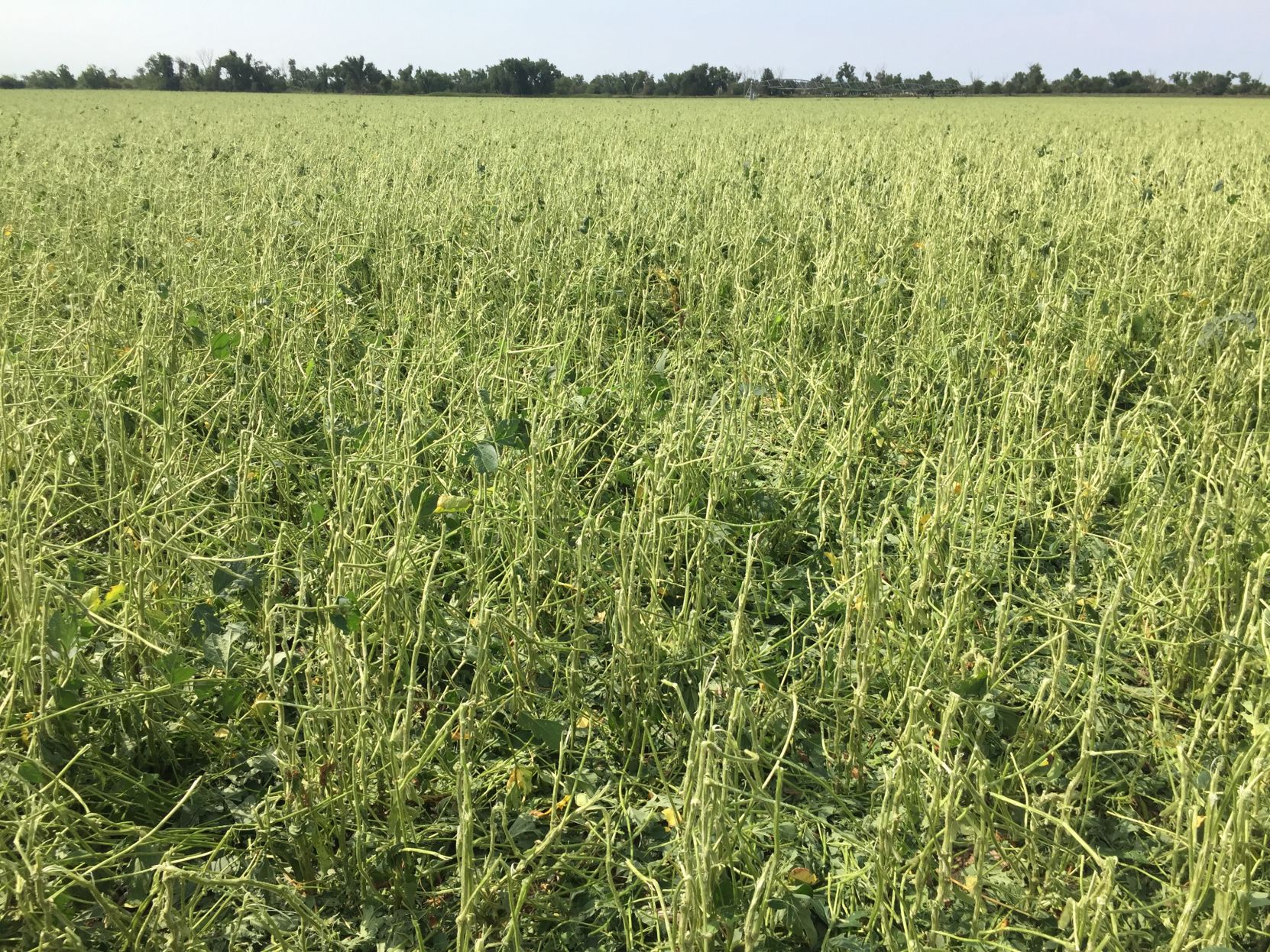Our home sits on the top of a little hill overlooking the Arkansas River. It’s an old house and nothing spectacular. What IS spectacular to me, are the views.
From our bedroom windows we can see our pasture and ponds with grazing cattle and wildlife. There are times when nearly 100 wild turkeys have taken over our yard for an hour or two. Sitting on my porch, I can see our neighbor’s beautiful soybean field.
Or at least that was the case until a few days ago when hail ravaged the tender leaves and it became a nearly unrecognizable crop. The storm was swift and severe and my broken windows were nothing compared to the devastation our neighboring fields sustained.
Since that particular field is so much a part of our summer views, I always enjoy watching the progress. It’s an irrigated field, so it’s rotated between corn and beans more often than not. Our neighbors are good farmers and I enjoy seeing how they produce a great crop off the field year after year.
I sat there, looking right and left at a soybean field with so much potential the day before that now looked like someone had taken a stalk chopper to it. It already smelled like silage. It was, unequivocally, a total loss.
It made me think about famers and the eternal optimism that drives them.
Why do you do it? Why do you put your heart and soul and sweat and pocketbook into a crop that could be gone in a blink of an eye? You know full well that Mother Nature may take it from you in any number of ways, and yet you still plant with potential on your mind.
But it’s exactly that knowledge of what could be that drives most farmers I know. You want to challenge yourselves to beat the hurdles that nature gives you and still thrive. You want to take the new, rapidly-evolving technology and raise better crops, improve the soil and do it all while having less effect on the environment.
Sure, it’s a business.
You do it because you have the potential to put food on the table for your family. Today we have tools like crop insurance that can take a little of sting away from a crop failure. But trust me, there are easier ways to make a living than farming—ways that don’t take nearly as much capital, time or risk.
And still, farmers farm because you love what you do. The business of agriculture isn’t for the weak. It’s for generations of men and women who persevere and thrive on challenge.
Regardless of what happened to that beautiful soybean crop last week, I can say with certainty that I’ll be able to sit on my porch and watch that field grow again next year because eternal optimism is a part of every farmer’s soul. And thankfully so.
Holly Martin can be reached at 1-800-452-7171, ext. 1806, or [email protected].
